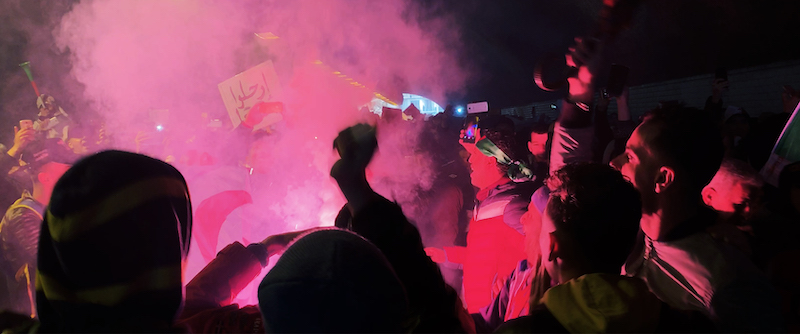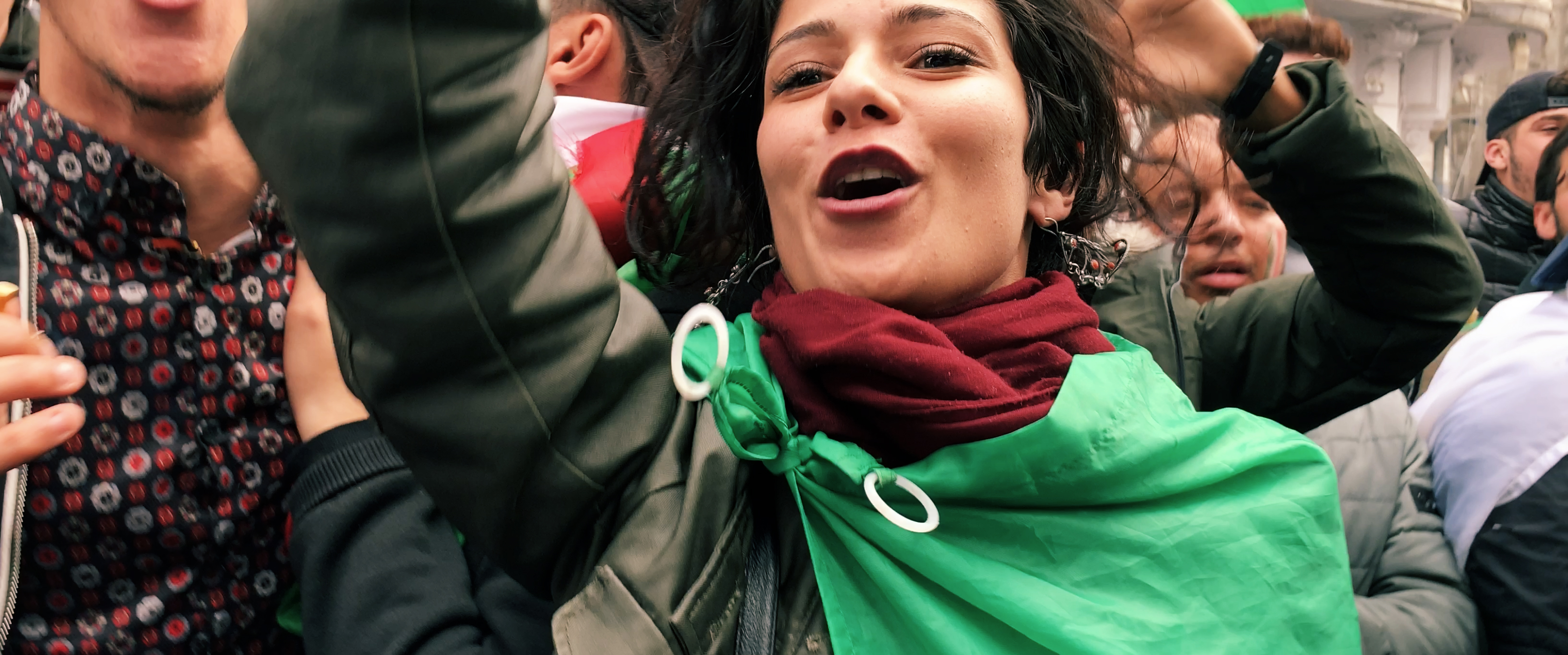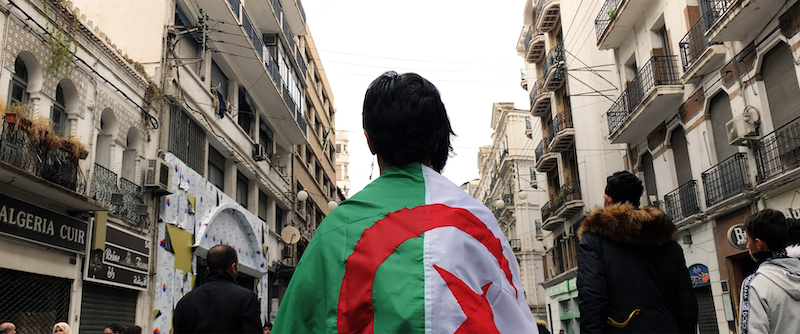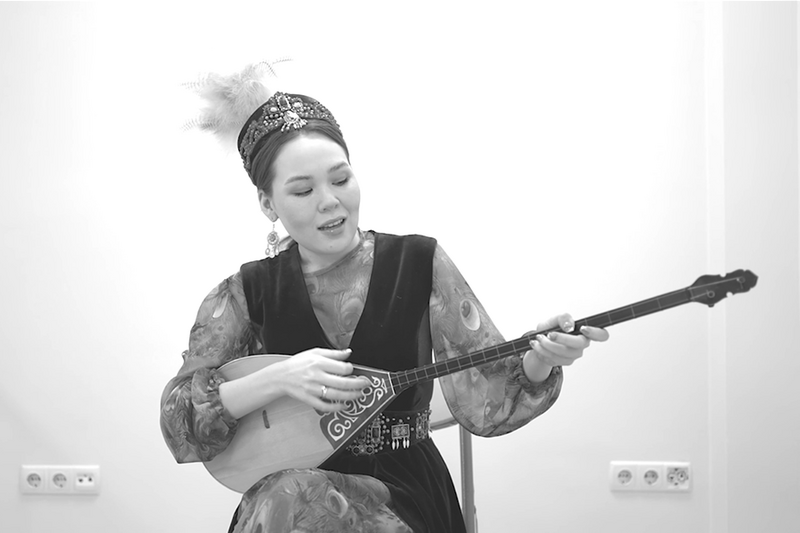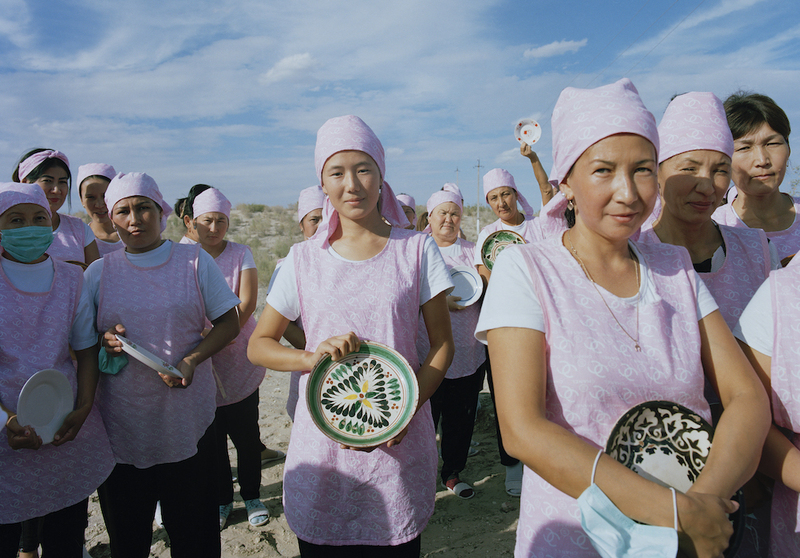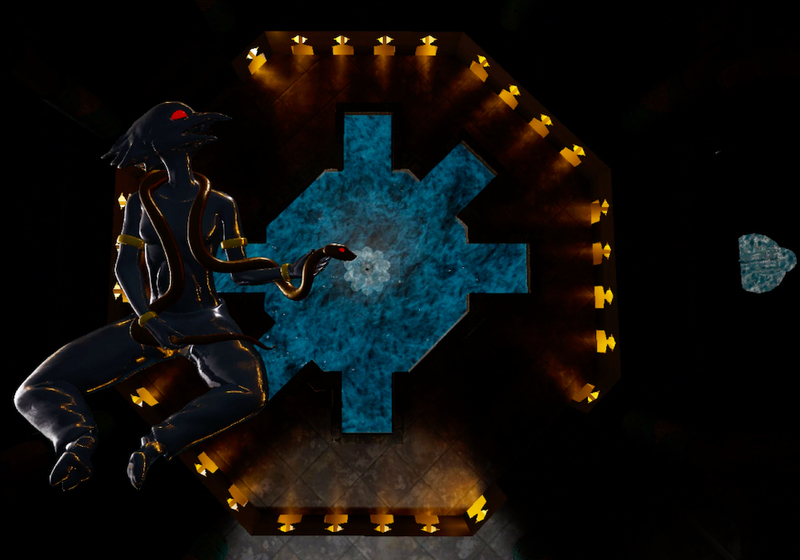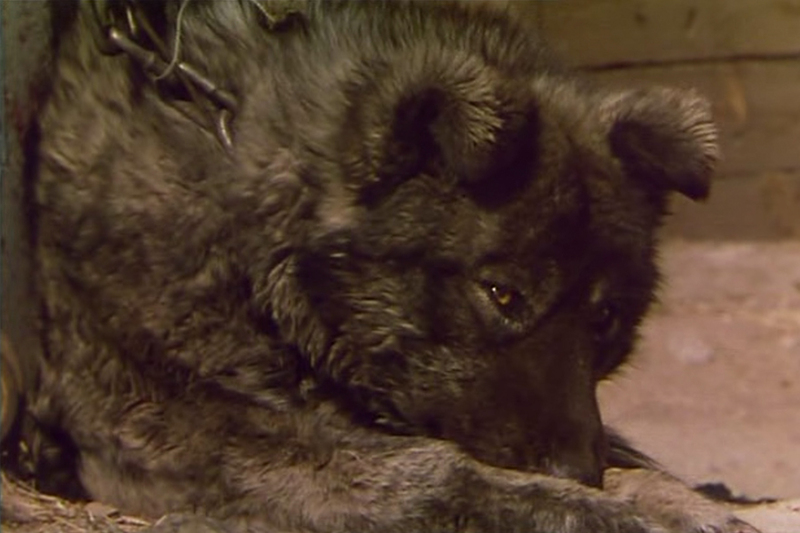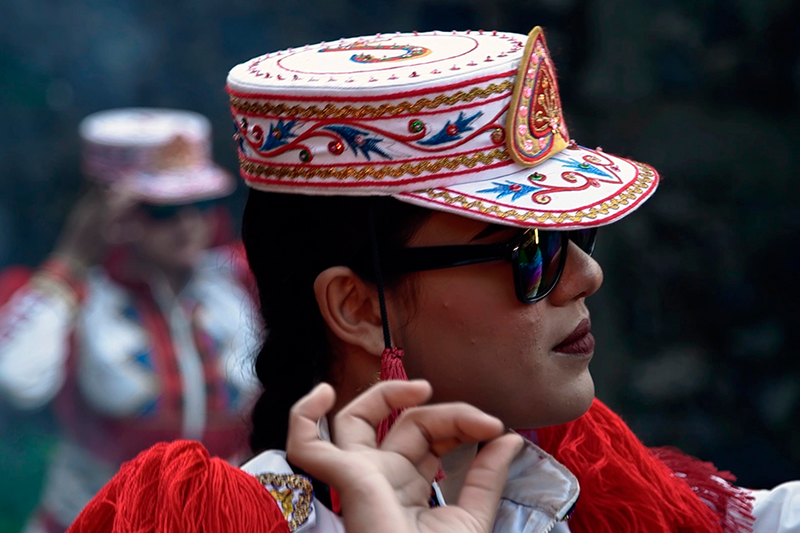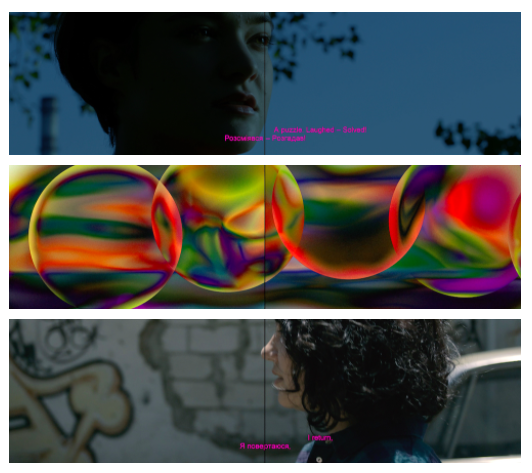On June 4–6, several free screenings will take place in St. Petersburg as a part of the Qatar Film Days festival of contemporary cinema from the Middle East and North Africa. One of the films presented to Russian audiences is Nardjes A.—the documentation of a day in the life of an Algerian activist who takes part in an anti-government rally. Anna Filippova explains why this story does not feel like something that occurs in a distant land.
The film was shot by Karim Aïnouz. Born in Brazil, he is half Algerian: his father is a Berber. Initially, he came to his ancestral homeland to work on a completely different film, Algerian by Accident, an autobiographical story about a person who travels to his native land for the first time, visiting a place he has never actually been. The director’s first visit took place in 2019, when he arrived to shoot an episode about the war of independence of Algeria (1954–1962) that his father had participated in. A week after his arrival, local mass protests broke out and he decided to film them. And it is with a mention of the events of the war of the middle of the 20th century in the opening credits—a landmark event for Algerians and a decolonial starting point—that the film Nardjes A. begins.
February 2019: the formation of a social movement called Hirak (Arabic for “movement”) became a turning point. Every Friday, Algerians took to the squares demanding political changes. The uncompromising thesis of the first rallies was the resignation of President Abdelaziz Bouteflika, who by then had not been appearing in public for many years. He was once a national hero who had unified the country after a bloody and brutal civil war during the 1990s—the so-called “Black decade.” Twenty years later, having suffered a stroke in 2013 and celebrated his 82nd birthday, Bouteflika continued heading the state. The trigger for the outbreak of the protests was the presidential nomination for his fifth term of office.
The old establishment representatives were still ruling in Algeria and their personal enrichment was possible thanks to the developed oil and gas sector. Over those two decades, all the super-profits of the state were spent not on the support of entrepreneurial initiatives or the development of civil institutions, but solely on facilitating a consumer boom: payments to the population, housing benefits, profitable loans given for the purchase of cars—all the means were meant to ensure loyalty.
Demographics undermined the stability of this, in general, already tried-and-tested model underlined by the authoritarian government and the loyalist society. Arab countries, and Algerian society in particular, are very young. A new generation had grown up characterized by fearlessness regarding the horror stories of the civil war the current government supposedly protects people from. Moreover, the young people were very much annoyed by the fact that under the current regime they have absolutely no future. There were no social lifts, no jobs, no civil liberties. To paraphrase the Kabakovs, “the wrong people will be taken into the future.”
Nardjes is one of the participants in the mass protest, a fearless emancipated woman. It is with her that Aïnouz spent the whole day on March 8, 2019—from early morning until late at night. The director speaks fluent Arabic, but he sometimes prefers to keep this fact a secret—for example, during the making of his other film Tempelhof Central Airport when he communicated with Arab protagonists, pretending to be a foreigner who did not understand anything. He needs such a distance both as a person who has come to look at his own, but at the same time, has come from a foreign country, and as a director who is simply obliged to take a couple of steps back in order to prevent himself from involuntarily showing his feelings and give space for authorial manipulations. This time, he also neither asks questions nor interacts with the protagonist in any way—the only thing he does is dispassionate observation. The entire film was shot on a smartphone because the Algerian authorities banned the use of professional equipment, threatening to revoke the license. This is a good example of how technical limitations can be compensated for by a director's ingenuity and editing. Having a story is the most important thing—a shooting method is something to come up with later.
Obviously, Nardjes was not taking part in the rallies not for the first time, as even her body seemed to be getting used to a special routine. When waking up early on the morning of March 8, she felt the lack of sleep, she was nervous and shaking. The protagonist’s father, who was also an activist in the past and was accused of having connections with the communists, was living abroad, and judging by his question about what was happening in Algeria, was far removed from the local political agenda. Certainly, Nardjes did not tell him she was going to attend a rally she risked not returning from. She had a casual talk with her father while finishing breakfast and then took a taxi to the city center, where she was met by roaring crowds.
The feeling of being immersed in the diverse exalted crowd that seems to carry you along wide avenues lined with houses built in the style of the Second Empire—another reminder of the metropolis—is generally a powerful feeling that the film gives. The protesters are chanting, “We demand a civil, not a military state!”, “No to the fifth term!No to the fifth term!After Bouteflika’s resignation on April 2, 2019 and the appointment of a new election, it was changed to “No to the shameful vote on December 12!”.”, “You are destroying the country!” They dance, sing songs, and beat drums.
Before my eyes, there is an amazingly cinematic image peaceful for the Eastern European eye: what kind of protest can be held with such Dionysian dances? At some point, the buzz started in my head because of all those chants, pitches, and patriotic songs: it is hard to imagine what a person on the other side of the screen feels in the epicenter of that orgy. After the end of the rally, the protesters begin collecting garbage, helping victims, checking on one another—did everyone return safe? Certainly, this almost idyllic picture does not contribute much to getting to the point of the Algerian regime: it was only in the beginning, when the authorities tried to pretend to start a dialogue with the opposition. Even in the pre-election campaign videos broadcast before the presidential election with similar candidates, Bouteflika’s functionaries, one could spot the footage from the spring protests. All this was just an imitation and the hypocrisy was instantly recognized: there were calls to boycott the presidential election, demands for lustration and a complete change of the political elite. Then sporadic detentions and arrests escalated into prison sentences for the protest leaders and some of its participants.
After a few hours full of adrenaline, simply returning home feels like an impossible thing to do and in the evening Nardjes, together with her friends, goes to a cafe to discuss this endless day. There is no fierce debate about the future of Algeria and the ways “to build the country back.” No one has any energy left and they keep on communicating, staying around for the sake of the sense of support and because of the impossibility to go to bed in their state. After the cafe, the friends head off to the club to forget themselves in dance and at least for a minute remember what their youth is for. Isn’t the point of youth to direct all your energy and time trying to be heard? Otherwise, one just has to endlessly wait.
The youth all around the world finally seems to be tired of waiting. They are ready to make themselves heard—another point is that nothing guarantees success. The euphoria of 1968 was followed by the disappointment of the 1970s, and the same thing can occur this time, too. This multi-million crowd has a lot of energy and hope, but in the political struggle neither, alas, are they seen as arguments or tools, moreover all is done to exclude the youth from economic life. To some extent, Nardjes A. is a very cosmopolitan film: it does not limit itself to documenting the Algerian protest, but captures something that instead reflects the worldwide resentment and the demand for global restructuring .
Nardjes A. creates a meaningful connection with the film Papicha by Mounia Meddour which will also be shown during the first screenings at Qatar Film Days. It also presents a story about youth and its sometimes insidious nature—because it gives you hope even when you find yourself in the epicenter of hell. Papicha documents the events of that very “Black decade”—the beginning of the civil war, anarchy, and violence. Twenty years later, the youth face the choice again—how to behave when your life is stolen. So far, they are choosing to resist.
Translated from Russian by Olga Bubich
